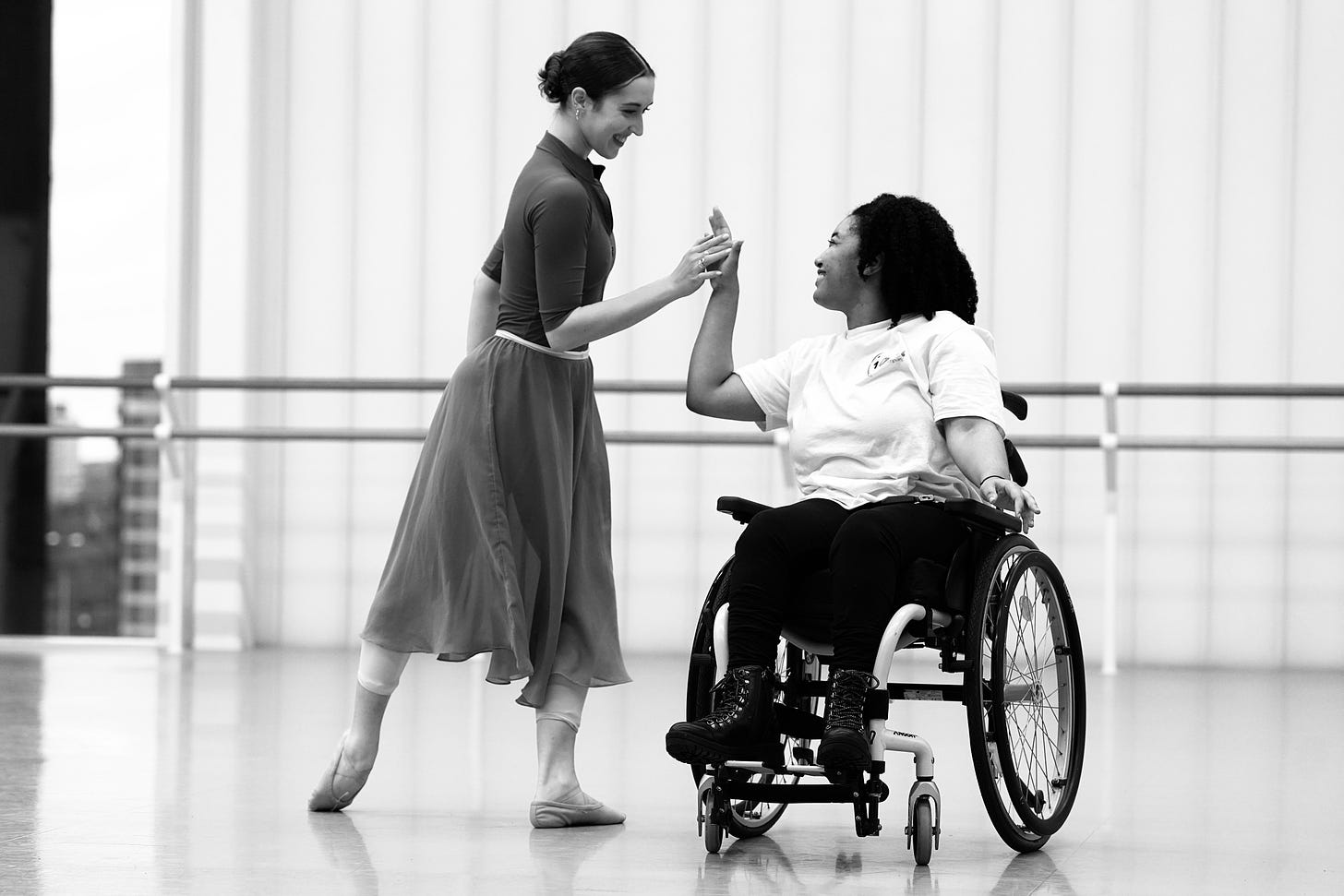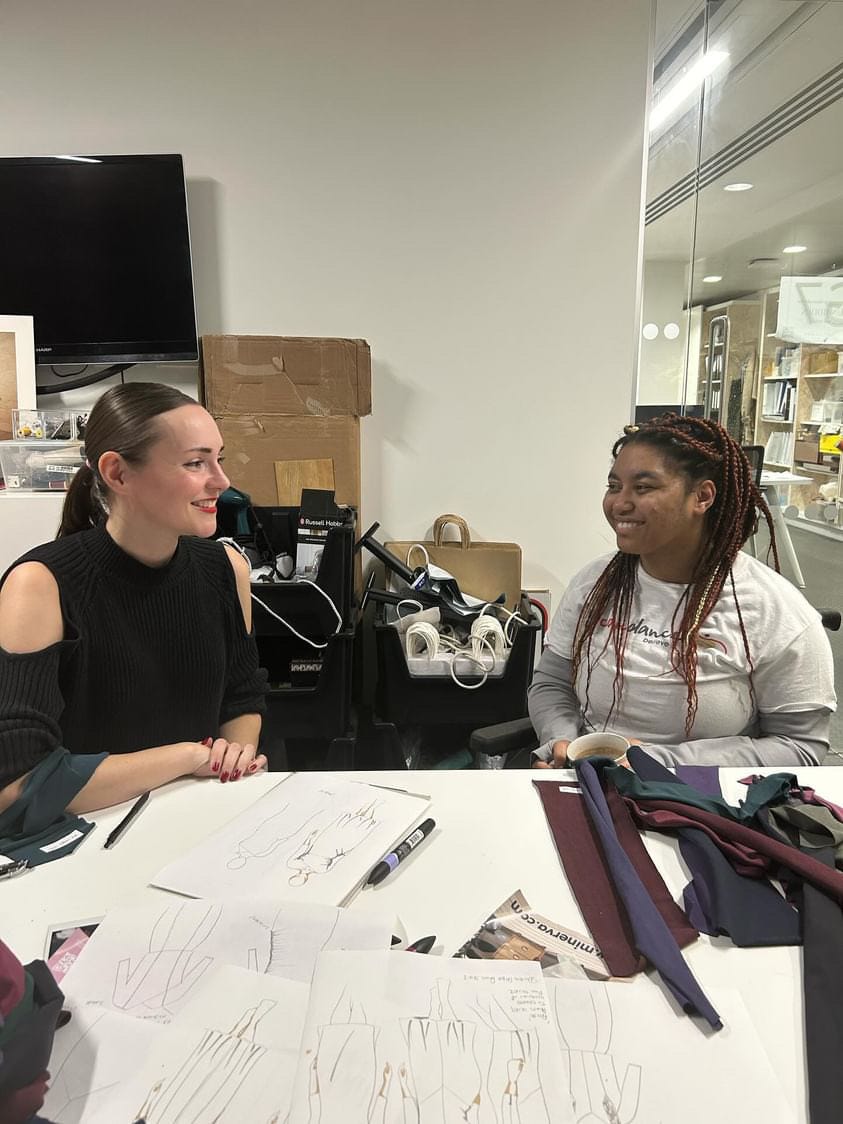
We kick this week off by hosting two roundtables for the textiles and fashion sector. The first with the Shadow Labour Culture Team and the second with the Liberal Democrats House of Lords team.
Over the summer we collated our own manifesto based on data, meetings and insights from fashion stakeholders which we have turned into key asks and perhaps more poignantly, solutions.
Based on this, some of our key policy areas include:
Support around Brexit implications
Extended Producer Responsibility (EPR)
VAT Retail Export Scheme
Tax incentives for sustainable businesses
Regenerating high streets through hyper-local placemaking
Return to STEAM education
Support for wellbeing in the creative sector
We’ll be covering more insights on these key areas over the coming weeks.
Karen Binns & Nasir Mazhar on The State of Fashion for SHOWstudio
Video shows Karen and Nasir in discussion. Footage courtesy of SHOWstudio Nick Knight
Our Fashion Director and global stylist, Karen Binns in conversation with Nasir Mazhar this week on the State of Fashion panel discussion for SHOWstudio.
Fashion weeks are over, for now. But where does that leave the state of fashion?
In the following panel discussion, Karen and Nasir unpack the trials and tribulations of the industry in the U.K— from classroom to catwalk. Click below for the discussion in full.
Disability designer Victoria Jenkins creates adaptive ballet costume for disabled dancer’s first Sadler’s Wells Performance
Image shows English National Ballet’s Alice Bellini and dancer Denecia Allen in rehearsals. The image is in black and white. Image credit: Bella Turolla
Disability advocate Victoria Jenkins, the creative force behind adaptive fashion brand Unhidden and Fashion Roundtable’s Representation and Inclusion Committee Co-Chair, has announced a transformative collaboration with icandance, a London-based charity that empowers disabled children and young people through dance and performance.
Victoria has over 14 years of experience in the fashion industry and starred on Channel 4’s Unique Boutique – a must-watch where inclusive fashion lovers and designers created bespoke outfits for every-body. Now, the visionary designer has created a bespoke ballet costume for 18-year-old wheelchair-using dancer, Denecia Allen. Denecia will wear the dress to perform with English National Ballet’s Alice Bellini at the Empower In Motion Gala at Sadler’s Wells in February.
After meeting with Denecia to understand the barriers she was experiencing with conventional dancewear, Victoria designed something not only aesthetically beautiful, but something which also allows Denecia maximum freedom of movement and comfort while performing in her wheelchair.
Of the collaboration, Victoria said:
“It has been wonderful working with and getting to know Denecia and what she needs from her costumes; a conversation I hope to continue as her dance career continues!
“The premise of the performance is wonderful and also something I hope to see grow as this community begins to be seen (and heard) on stage and on screen. I am very proud to be a very small part of this fantastic occasion.”
Undoubtedly, this collaboration exemplifies the power of adaptive fashion in breaking down barriers and creating opportunities for all individuals to showcase their talents.
Denecia said:
“We may be a bit different on the outside but inside we are all the same. People should come and see what dance is truly about and not think about the negative of things but just the happiness and joy.’
Image shows Victoria meeting with Denecia. They are both sat around a table looking at dress designs and fabric swatches. image credit: Lewis Dryburgh.
For more in this space, listen to our podcast with Victoria on adaptive fashion and her top policy asks for advocating for inclusivity in the fashion space, click below. Transcript included.
Want to work with us? We’re hiring now.
Want to work with us? This is an exciting opportunity to join Fashion Roundtable and Bath Spa University in a consultancy capacity for 3 x days a week. You will be responsible for assessing, mapping, and monitoring funding bids and leading on opportunities for funding policy work. As well as supporting Fashion Roundtable’s team in conducting high-quality research and reporting as tasked for a range of outputs. Deadline: 6th February.
Women and Equalities Committee warns of ‘endemic’ misogyny faced by women in the music industry

Women pursuing careers in music face “endemic” misogyny and discrimination in a sector dominated by self-employment and gendered power imbalances, the Women and Equalities Committee (WEC) has warned.
WEC’s ‘Misogyny in Music’ report laid bare a “boys’ club” where sexual harassment and abuse is common, and the non-reporting of such incidents is high. Victims who do speak out struggle to be believed or may find their career ends as a consequence.
Making a series of strong and wide-ranging recommendations, the cross-party committee of MPs called on ministers to take legislative steps to:
Amend the Equality Act to ensure freelance workers have the same protections from discrimination as employees and bring into force section 14 to improve protections for people facing intersectional inequality.
Impose a duty on employers to protect workers from sexual harassment by third parties, a proposal the Government initially supported and then rejected last year.
The Chair of the WEC, Rt Hon Caroline Nokes MP said:
“Women’s creative and career potential should not have limits placed upon it by ‘endemic’ misogyny which has persisted for far too long within the music industry.
“Our report rightly focuses on improving protections and reporting mechanisms, and on necessary structural and legislative reforms.
“However, a shift in the behaviour of men—and it is almost always men - at the heart of the music industry is the transformative change needed for talented women to quite literally have their voices heard and be both recognised and rewarded on equal terms.”
Models gear up for a legal battle around AI

This week, Vogue Business, discussed the legal and ethical implications of digitising models. This comes after an increase in models’ faces being modified, altered and digitised using AI tools.
Last year, we raised a number of concerns around the need for urgent laws, guidelines and regulations in the use of AI. Our key policy asks were for:
A roadmap which takes responsibility for the potential impacts of AI on the labour market; its impact on skills and the required steps to mitigate devastating job losses in the fashion sector.
A long-term focused and robust policy framework with a rights-based and people-focused approach to artificial intelligence, and for a process that puts the voices and interests of workers at its heart.
Transparency around the use of AI. That all AI designs and marketing be labelled as such, to ensure that those created by people are set apart. Similar to the Competition and Markets Authority policy for content creators and influencers on transparency around ads.
Stringent IP regulation that protects creatives and their work from the use in training of AI programmes and systems.







